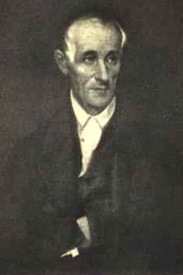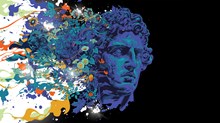
After returning from the most recent meeting of the Society of Biblical Literature, noted New Testament scholar Dan Wallace of Dallas Theological Seminary raised a longstanding concern. Qualified graduates of evangelical seminaries find it difficult to gain admission to prestigious biblical studies programs in the United States. The critical assumptions of the modern academy prohibit many evangelicals who regard the Bible as authoritative from being accepted by the scholarly guild.
This problem is certainly now new. But more than 500 comments on Wallace's blog indicate that it still elicits strong reactions. Since the early 20th century, evangelicals have been treated as outcasts by some of the very schools their forebears founded. This reversal has obscured the historic role of evangelicals in bringing America up to date with German and British advances in biblical scholarship. Andover Seminary's Moses Stuart in particular earned the title "Father of Biblical Science in America" for his distinguished career teaching generations of pastors and scholars at America's first seminary.
Born in Wilton, Connecticut, in 1780, Stuart graduated first in his class from Yale in 1799, three years before the Connecticut college would welcome its first major revival under the leadership of president Timothy Dwight. During this revival, one-third of Yale students converted. Stuart himself was converted shortly after returning to New Haven to work as a tutor and study law in the fall of 1802. Divinity became his passion, and Stuart sought opportunities to study theology with Dwight, a grandson of Jonathan Edwards would mentor several luminaries at Yale, including theologian Nathaniel William Taylor and pastors Lyman Beecher and Asahel Nettleton.
When he was just 29 years old, Stuart was hired by Andover to teach sacred literature. Andover had been founded just one year earlier in 1808. He would serve at the northeastern Massachusetts school for nearly 40 more years until 1848. At the outset of his career, Stuart faced an almost impossible task. He was charged with teaching biblical languages, exegesis of both testaments, and various other subjects related to critical Bible study. But Stuart had received no advanced training in the biblical languages at Yale. Nevertheless, Stuart devoted himself to meeting this challenge. During 1816 and 1817, he learned Syriac, Aramaic, and Arabic. He excelled in Hebrew study, eventually writing six books in the field. He also wrote a book about biblical Greek. But it was Stuart's decision to learn German that helped determine the trajectory of his scholarship. Less than 18 months after Stuart began reading German, he had mastered the language.
Stuart did not uncritically accept all the conclusions of German critics, but he recognized how their methods aided biblical studies in ways the Americans and British had not anticipated. He was at the forefront of trends that would eventually preoccupy North American biblical scholarship. He was an articulate advocate for the grammatical-historical school of biblical exegesis. He argued that the manner of Scripture is human while the matter has divine origins. The Bible is authoritative but open to interpretation according to commonly held principles of exegesis.
Stuart occasionally confronted critics directly, as he did with Unitarian pastor William Ellery Channing. Stuart urged his opponents to consider that whatever doubts they might harbor about Scripture, the Old Testament in particular, divine authority compels all to trust. If you think the New Testament originated with God, Stuart argued, then in order to be consistent you must follow the New Testament and recognize the Old Testament's authority. Indeed, Christ and the apostles, commissioned by God, received and taught the Jewish Scriptures as originating with God.
Stuart occasionally clashed with conservative scholars, too. But Princeton Seminary titan Charles Hodge appreciated Stuart for advancing the cause of philology.
We have, therefore, long been in the habit of regarding Professor Stuart as one of the greatest benefactors of the Church in our country, because he has been the principle means of turning the attention of the rising generation of ministers to this method of studying the Bible. This, we doubt not, is the great service of his life; a service for which the whole Church owes him gratitude and honour, and which will be remembered when present differences and difficulties are all forgotten. We do him, therefore, unfeigned homage as the great American reformer of biblical study, as the introducer of a new era, and the most efficient opponent of metaphysical theology.
Andover and even Princeton would eventually succumb to the trends bemoaned by Stuart and Hodge. But Stuart's work, particularly his commentary on Romans, has stood the test of time. And his students, at least, recognized his momentous contributions to American scholarship. They honored him in death with a tombstone inscription that captures his professional achievements and profound faith.
A meek and earnest disciple;
a fervid and eloquent preacher;
a generous and cordial friend;
a lover of all good learning;
versatile in genius, adventurous;
in research, quick in acquisition;
an enthusiastic and attractive teacher,
devoting himself with patient and
successful toil to the revival and
cultivation of Sacred Literature,
he is justly called among
the Scholars of his native country,
The Father of Biblical Science.
The Word which he loved in life
Was his light in death.
He now sees face to face.

Support Our Work
Subscribe to CT for less than $4.25/month




























